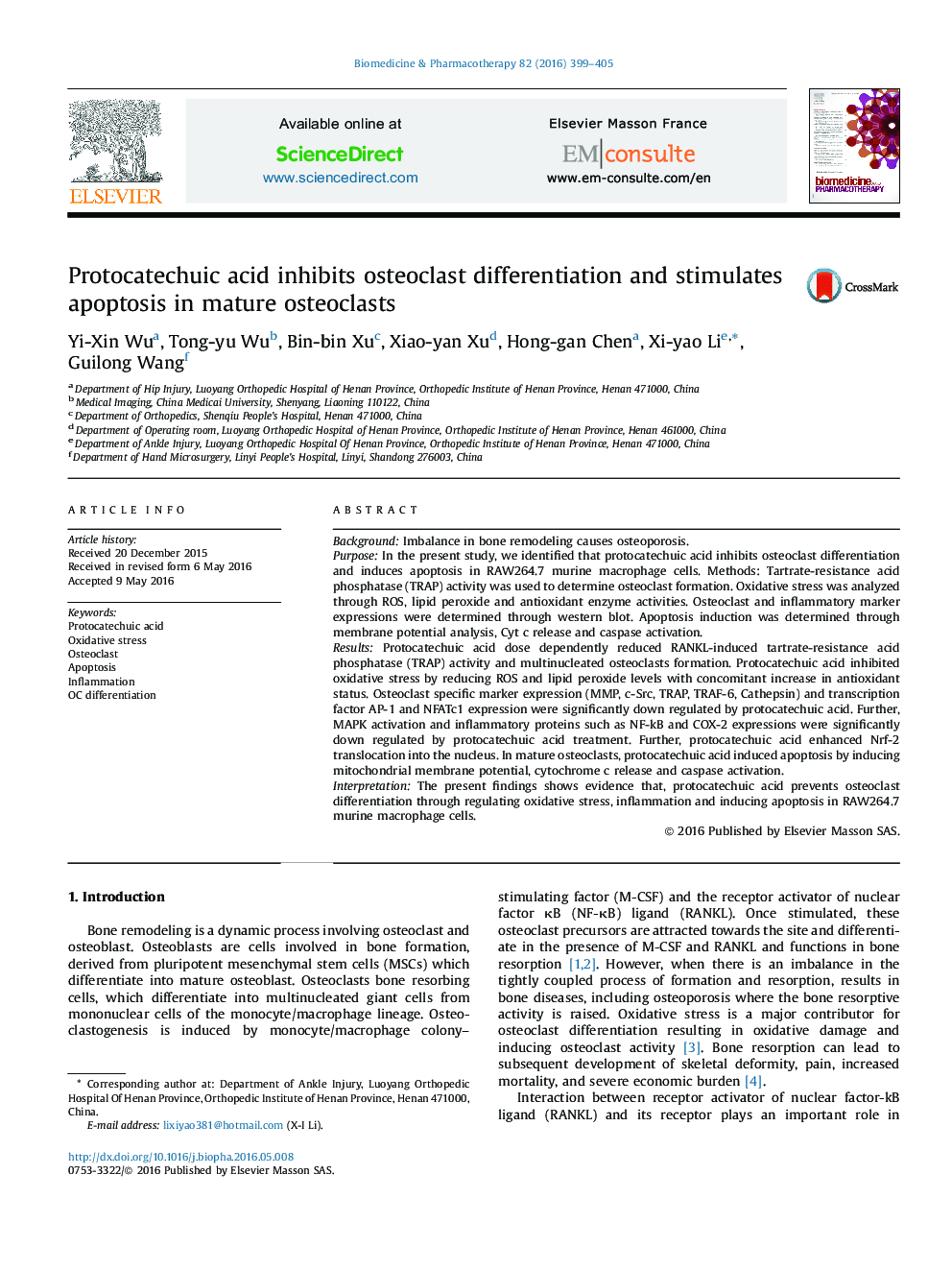| Article ID | Journal | Published Year | Pages | File Type |
|---|---|---|---|---|
| 2524587 | Biomedicine & Pharmacotherapy | 2016 | 7 Pages |
BackgroundImbalance in bone remodeling causes osteoporosis.PurposeIn the present study, we identified that protocatechuic acid inhibits osteoclast differentiation and induces apoptosis in RAW264.7 murine macrophage cells. Methods: Tartrate-resistance acid phosphatase (TRAP) activity was used to determine osteoclast formation. Oxidative stress was analyzed through ROS, lipid peroxide and antioxidant enzyme activities. Osteoclast and inflammatory marker expressions were determined through western blot. Apoptosis induction was determined through membrane potential analysis, Cyt c release and caspase activation.ResultsProtocatechuic acid dose dependently reduced RANKL-induced tartrate-resistance acid phosphatase (TRAP) activity and multinucleated osteoclasts formation. Protocatechuic acid inhibited oxidative stress by reducing ROS and lipid peroxide levels with concomitant increase in antioxidant status. Osteoclast specific marker expression (MMP, c-Src, TRAP, TRAF-6, Cathepsin) and transcription factor AP-1 and NFATc1 expression were significantly down regulated by protocatechuic acid. Further, MAPK activation and inflammatory proteins such as NF-kB and COX-2 expressions were significantly down regulated by protocatechuic acid treatment. Further, protocatechuic acid enhanced Nrf-2 translocation into the nucleus. In mature osteoclasts, protocatechuic acid induced apoptosis by inducing mitochondrial membrane potential, cytochrome c release and caspase activation.InterpretationThe present findings shows evidence that, protocatechuic acid prevents osteoclast differentiation through regulating oxidative stress, inflammation and inducing apoptosis in RAW264.7 murine macrophage cells.
